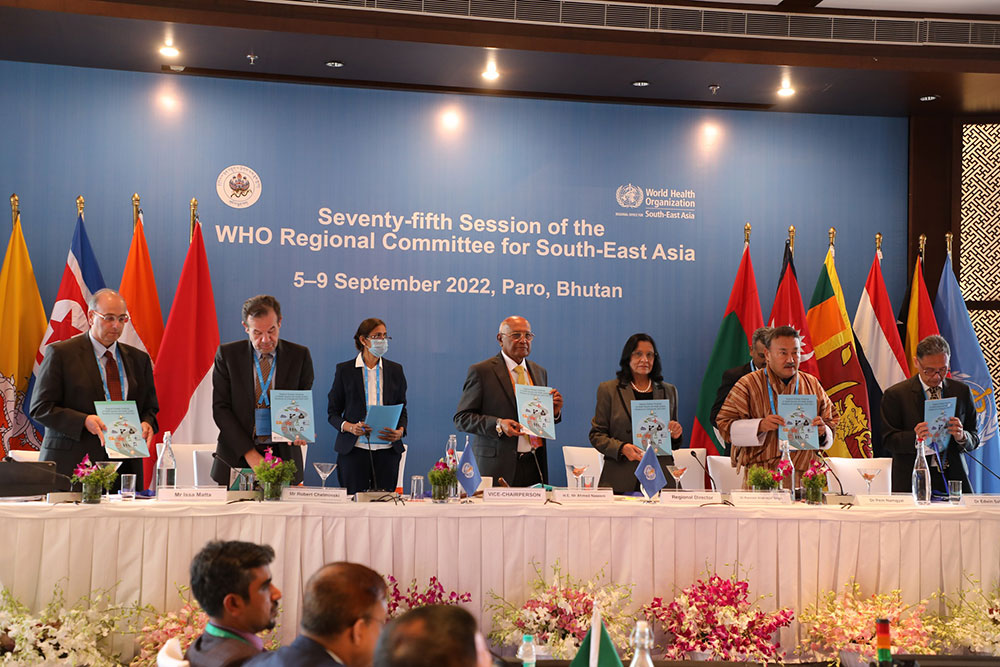Nima Wangdi
The member countries of the South-East Asia Region (SEAR) of the World Health Organisation (WHO) endorsed the implementation roadmap of the prevention and control of non-communicable diseases (NCD) in the region 2022-2030 at the third day of the ongoing 75th session of the regional committee meeting in Paro yesterday.
The regional NCD implementation roadmap 2022–2030 provides strategic directions to accelerate the national NCD response through the primary health care and universal health coverage routes to improve access, coverage and quality of NCD prevention and control interventions for the achievement of the 2025 and 2030 NCD targets.
Oral health in South-East Asia 2022–2030 and the action plan for integrated people-centered eye care in South-East Asia 2022–2030 were also endorsed.
The action plan for oral health in South-East Asia 2022–2030 provides guidance for the member countries to develop impactful national actions to improve oral health through aligned approaches within the ambit of universal health coverage.
The regional action plan for integrated people-centred eye care in South-East Asia 2022–2030 aims to provide “equitable access to high-quality, comprehensive eye health services to achieve universal eye health by 2030” and accelerate progress towards achieving the global targets of refractive error and cataract surgery and two regional targets for diabetic retinopathy and trachoma elimination.
Regional Director, Dr Poonam Khetrapal Singh, said that the region must build on the progress made in the prevention and control of non-communicable diseases. “Though trends are in the right direction, we need to accelerate efforts to achieve global, regional, and national goals.”
NCDs, including cardiovascular diseases, cancers, chronic respiratory disease and diabetes account for almost two-thirds of all deaths in the region according to the press release from the WHO. “Nearly half of these deaths occurred prematurely between the ages of 30 and 69 years in 2021.”
Oral diseases are among the most common NCDs in the region with cases of untreated dental caries, severe periodontal diseases and edentulism. The region reportedly has the highest oral cancer incidences and mortality rates among all WHO regions.
The resolution calls for strengthening policy and legislative frameworks, as well as advancing primary health care, universal health coverage, human resources, accountability and quality of national health information systems, and the crucial role of data and information systems at all levels to promote accountability.
“Decisive leadership and political commitment can provide the policy and legislative frameworks needed to integrate high-quality, comprehensive oral health and eye health services in primary health care to achieve the targets,” Dr Singh said.
WHO committed to providing adequate technical support to member countries for the implementation of the three plans, including strengthening the related monitoring and evaluation systems, and collaboration with partners and stakeholders for aligned and effective implementation of the strategic action plans.
About 300 delegates from the member countries, including the health ministers, are participating in the session.
This is the 3rd regional committee that Bhutan is hosting. The venue of the regional committee meeting is rotated among the 11 member countries of South-East Asia on an annual basis with the convening held in New Delhi, the headquarters of SEARO, once every five years.
The 75th Regional Committee that started on September 4 will end on September 9.


